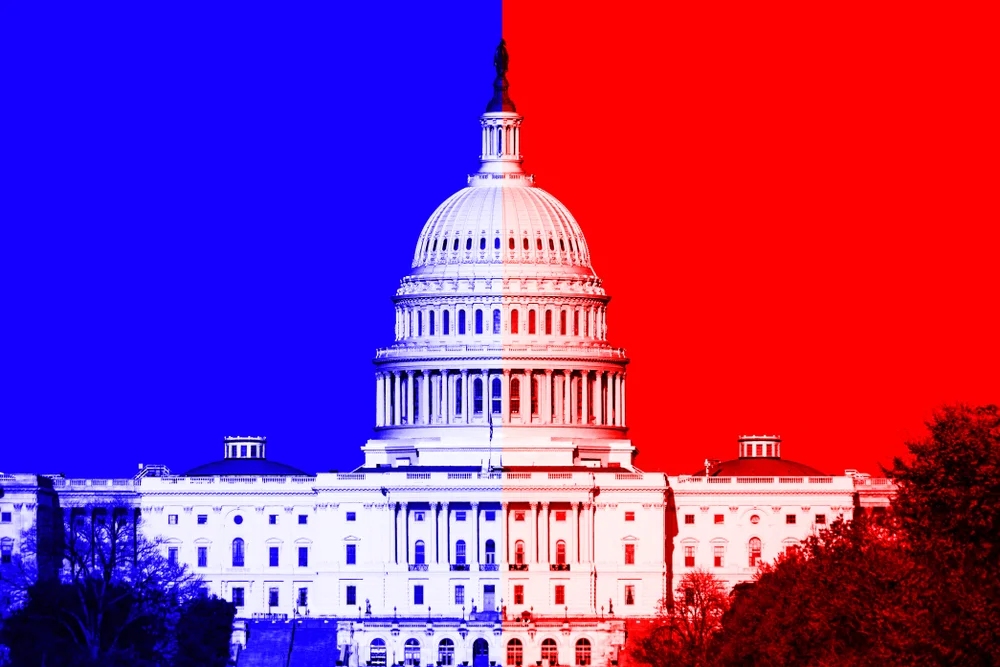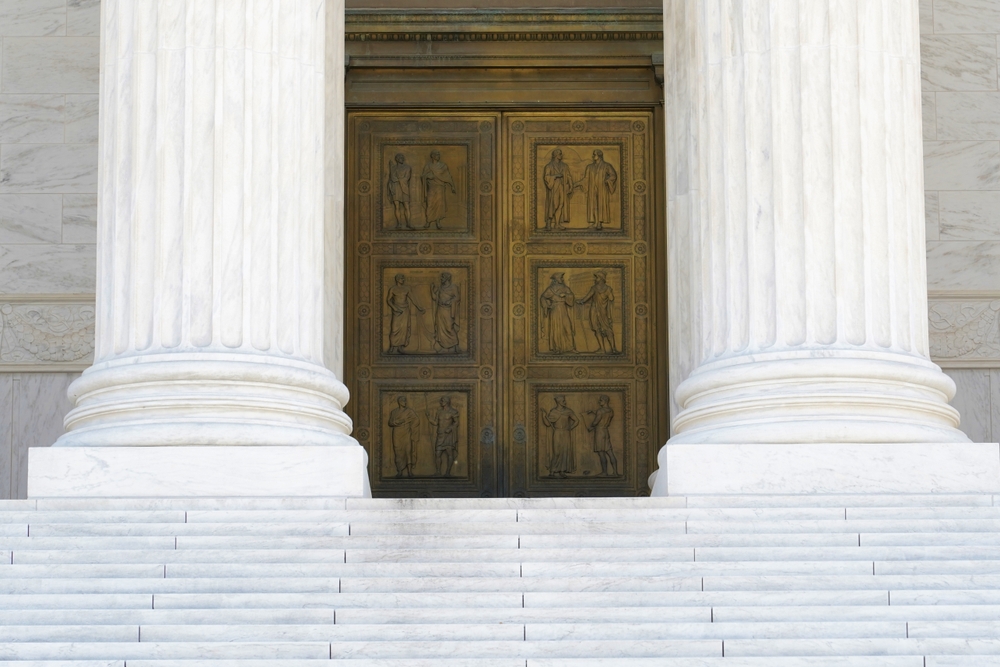
Ban the Filibuster — But Only for Continuing Budget Resolutions
No political party ought to hold a nation hostage with what should be routine actions.
It looks as though the dam has now broken, and that the government will now reopen next Sunday after eight Democratic Senators broke ranks with their party to take a deal on addressing further Obamacare subsidies. The decision, which Democratic hardliners immediately denounced, is of course both welcome and overdue. It is therefore appropriate to ask how this catastrophic meltdown occurred and what can be done to prevent it.
The political origin of the breakdown is easy to identify. The increased polarization of American politics has caught most Americans in the crossfire over whether to issue a once-routine resolution to lift the debt ceiling. Without that blessing, the Department of Treasury was unable to issue new debt instruments to fund the federal government’s chronic budget deficits. Retired New York Times columnist, Paul Krugman, writing in May 2023, called the debt ceiling “fundamentally crazy,” because the outcome always had to be the same: a vote to raise the ceiling to keep the country in operation.
Six weeks too late that happened here. But in the interim. it was apparent that, too many of today’s Democrats have forgotten that lesson when they chose to mount a prolonged filibuster to block the resumption of federal borrowing. Their objective was to force the Republicans to accede to new legislation that would continue the COVID-19 subsidy, which the Democrats had passed in 2021 as an explicitly temporary measure for an emergency that has now passed. Fiscal conservatives stoutly opposed the familiar bait-and-switch operation. Step one, promise only temporary relief. Step two, make it permanent. The Democrats surely could have had their way if they had held majorities in both houses of Congress. They knew that they could not have gotten that measure adopted by regular procedures, so they used the filibuster as a gambit to turn a losing position into a winning one. That hold-up was stopped. It must never be allowed again. The best way to achieve this is through a limited exercise of the “nuclear option”: removing the filibuster for budget resolutions, just as it is currently removed for judicial appointments. To no one’s surprise, given the failure to take this, or indeed, any other action, the economy teetered, where the most conspicuous bottleneck was the massive disruptions in air travel that only promised to get worse in the coming weeks if air controllers, now working without pay, continued to call in sick in larger numbers. Fewer controllers lowers the number of flights, especially at major airports where traffic is the heaviest. Thanksgiving should return to normal,
My proposal for the selective removal of the filibuster requires a return to first principles. After all, why keep the filibuster at all? Remember that Republicans have a working majority of 53-47 in the Senate, and at any point, they could have voted to end the filibuster to break the impasse by a simple majority vote. President Trump, no senator he, urged Senate Majority Leader John Thune of South Dakota to do just that. Thune stoutly resisted the proposal, and Trump, the outsider, has backed off. This past weekend, Senate Minority Leader Chuck Schumer pushed hard for a compromise position that would have extended the subsidies (which price out at a cost of about $350 billion over a ten-year budget window), which Thune quickly rejected. On that point, he was surely right. Within the current system, yielding on this point would mean that next time around the Democrats could have used the same stalling tactic to wring yet another massive concession out of the Republicans. So, it's better to stop the cycle as he did by promising to reopen the discussion on expanded COVID benefits once federal funding had been restored. Now, it remains to be seen whether the off-year election gains for the Democrats will yield political benefits. At this point, there is no quarrel about the process, and no threat of a repeat of the original mistake.
To return to first principles, the creation of the filibuster was closely tied to the republican, as opposed to the democratic, form of government. Today, with the rise of “democratic theory,” the distinction between these two forms of popular government is easily lost, but the Constitution in Article IV, Section 4 states that “[t]he United States shall guarantee to every State in this Union a Republican Form of Government.” The choice of the word “Republican” was meant to capture this key difference. Democratic institutions encouraged legislative abuse, if not a mob mentality, by allowing up-or-down votes by simple majority, which could facilitate the confiscation of wealth from the rich and distribute it to everyone else, potentially leading to the end of financial growth and stifling economic innovation. Republican institutions that are replete in the Constitution impose elaborate procedural restraints designed to slow down the pace of legislation through a comprehensive system of checks and balances. To be sure, much good legislation can be blocked by this device. Yet at the same time, there is an iffy assumption that more bad legislation will be blocked by the filibuster than good legislation, so that an imperfect filter is better than no filter at all. To be sure, this claim is often challenged on the ground that the filibuster does the precise opposite — it blocks the passage of good laws and the repeal of bad ones.
However, we do not need to resolve this broad debate to reject the filibuster for continuing budget resolutions. The stated objective of a filibuster is to prevent the passage of unwise legislation by imposing a supermajority requirement on laws with high costs and low benefits. The general use of the filibuster, whether for good or evil, should not be allowed to disrupt any existing program that continues in the same way that it would operate if the filibustered piece of legislation had never been proposed or never brought to a vote. No one has ever voted to shut down the nation’s air transportation system by refusing to fund Covid relief funds. The filibuster cannot have any legitimate object when the programs that have been blocked or compromised have already been fully funded, often by overwhelming majorities. No one in either party believes that the world is better off with the shutdown of air transportation on its independent merits.
It is that position that then leads to a modification of the filibuster rule, which confines its operation. The Republicans should be stoutly opposed to the removal or the weakening of the filibuster for ordinary legislation, but not for continuing resolutions. After all, if anything, there should be some increased support for the Krugman proposal to remove the debt ceiling altogether and to rely on other devices to control runaway spending. It should be possible, for example, to use a flat tax on ordinary income to prevent the obvious temptation to use progressive taxation against the rich to fund a set of goodies for the poor. At this point, the support for that position seems vanishingly weak as each party also waits for the opportunity to use programs with special benefits and burdens to weaken its political opponents. But the bleak political climate for sensible reform does not mean that we should stick with a system that does not work.
There is, moreover, a powerful precedent for the selective removal of the filibuster. The history begins in 2001, when the Democrats resorted to the filibuster against judicial nominee Miguel Estrada, not because he was unqualified, but because he was too qualified a Hispanic lawyer, who would have been difficult to oppose if the Republicans had nominated him for the Supreme Court. Nothing was done to fix the system after Estrada withdrew, but when the tables were turned in 2013, the late Senate Majority Leader Harry Reid made his legacy when he deployed the nuclear option to remove the filibuster for all lower court judges. There is no particular need to pass new laws, but there is an imperative need to replenish the federal bench. The inevitable use of the filibuster would unduly deplete the ranks of all judges, indeed, all appointed officers in need of Senate confirmation. But the partisan motivation of Harry Reid led to additional long-term beneficial consequences. Indeed, in short order, then-Senate Majority Leader Mitch McConnell extended the same rule to the confirmation of Supreme Court justices, without which the Court might be unable to maintain a quorum.
We should expect the same outcome here. The suspension of the filibuster for continuing resolutions might have favored the Republicans this time around, but this rule should be adopted regardless of whether the parties shift places, so that the public is protected against the narrow partisanship of both parties. Make the narrow change today so that the filibuster check remains an anti-majoritarian check only in cases of ordinary legislation, where it may still be needed.
Richard A. Epstein is a senior research fellow at the Civitas Institute. He is also the inaugural Laurence A. Tisch Professor of Law at NYU School of Law, where he serves as a Director of the Classical Liberal Institute, which he helped found in 2013.
Constitutionalism

Amicus Brief: Hon. William P. Barr and Hon. Michael B. Mukasey in Support of Petitioners
Former AGs Barr and Mukasey Cite Civitas in a SCOTUS Brief

Rational Judicial Review: Constitutions as Power-sharing Agreements, Secession, and the Problem of Dred Scott
Judicial review and originalism serve as valuable commitment mechanisms to enforce future compliance with a political bargain.

Supreme Court showdown exposes shaky case against birthright citizenship
Supreme Court will hear challenges to Trump's order ending birthright citizenship, testing the 14th Amendment's guarantee for babies born in America.

Slavery and the Republic
As America begins to celebrate its semiquincentennial, much ink has been spilled questioning whether that event is worth commemorating at all. Joseph Ellis’s The Great Contradiction could not be timelier.

Two Hails For The Chief’s NDA
Instead of trying to futilely plug the dam to stop leaks, the Court should release a safety valve.
.avif)

.avif)










.avif)



